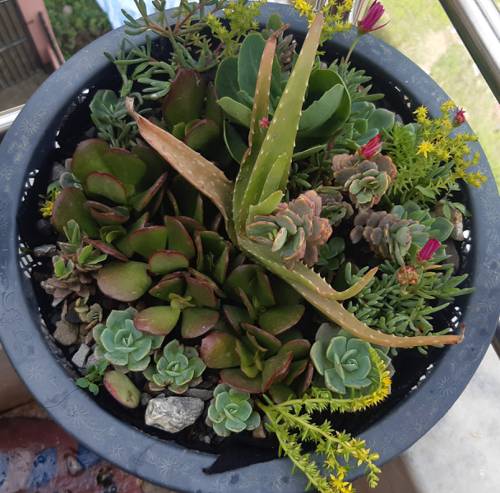
FAQ About Indoor Plant Allelopathy

What is indoor plant allelopathy?
Indoor plant allelopathy refers to the chemical interactions that occur between plants grown indoors, where certain plants may release substances that affect the growth and development of neighboring plants. These chemicals can either inhibit or promote the growth of other plants in proximity.

How do allelopathic chemicals affect other plants?
Allelopathic chemicals can affect other plants by suppressing their germination, growth, nutrient uptake, or overall health. These chemicals are often released into the environment through root exudates, leaching from leaves, or decomposition of plant material, and can have both inhibitory and sometimes beneficial effects depending on the species involved.

Can all indoor plants exhibit allelopathy?
Not all indoor plants exhibit allelopathic behavior. While many plants have some allelopathic potential, it varies significantly among species. Certain plants, like those in the Brassicaceae family, are more well-known for their allelopathic properties, whereas others may not have notable effects.

Which common indoor plants are known for their allelopathic effects?
Some common indoor plants with allelopathic properties include Chrysanthemums, Mint (Mentha), Ailanthus altissima (Tree of Heaven), and certain types of ferns. These plants are known to release chemicals that can affect nearby plants negatively.

How can you manage allelopathic effects among indoor plants?
To manage allelopathic effects among indoor plants, it is essential to understand the specific interactions between the plants you have. Keeping plants with known allelopathic properties separated from others can help. Regularly refreshing soil and ensuring good drainage can also mitigate some of the negative effects.

Are there positive allelopathic interactions among indoor plants?
While allelopathic interactions are often thought of as negative, some plants may benefit from the chemicals released by others, such as through enhanced disease resistance or improved growth in certain conditions. However, these positive interactions are less common and not as well-studied as inhibitory effects.

Do allelopathic effects occur in indoor hydroponic systems?
Yes, allelopathic effects can occur in indoor hydroponic systems. The water-based environment can facilitate the spread of allelopathic chemicals between plants more easily than soil, making it important to monitor plant combinations closely in such setups.

How do allelopathic mechanisms function in plants?
Allelopathic mechanisms function primarily through the release of specific biochemicals known as allelochemicals. These are secondary metabolites that can alter the growth and development processes of other plants, either through inhibiting root growth, germination, or disrupting cellular processes in susceptible plants.

Can allelopathy be beneficial for any plants indoors?
In certain cases, allelopathy can confer benefits, such as preventing the growth of competing weeds or pests, thereby potentially aiding some indoor plants by reducing competition for resources. However, intentional use of allelopathy for beneficial interactions requires careful planning and understanding of the plants involved.

What are some symptoms of allelopathic stress in plants?
Symptoms of allelopathic stress in plants may include stunted growth, poor germination rates, discolored or wilting leaves, reduced yields, and overall poor health. These symptoms can mimic other forms of plant stress, so proper diagnosis is crucial.

Can soil amendments help to reduce allelopathic effects indoors?
Soil amendments, such as activated charcoal or compost, can sometimes help to reduce allelopathic effects by absorbing or neutralizing the allelopathic chemicals present in the soil. Regularly refreshing the soil and allowing time for decomposition of residues can also assist in managing these effects.

How can I identify if my indoor plant is experiencing allelopathy?
Identifying allelopathy in indoor plants involves observing specific signs of stress in plants without other apparent causes. It is helpful to consider recent changes in plant placements, soil, and environmental conditions, as well as researching known allelopathic species among your plant collection.

What role does water play in allelopathic interactions indoors?
Water can facilitate the release and movement of allelopathic chemicals between plants, especially in conditions where excessive watering leads to leaching or in hydroponic systems. Proper water management can therefore be crucial in controlling potential allelopathic interactions.

Can repotting plants help manage allelopathic effects?
Repotting plants can help manage allelopathic effects, particularly if it involves changing the soil to one free of allelochemical residues. This can provide a fresh environment for the affected plants and reduce the impact of previously released allelopathic chemicals.

Are there any cultural practices to minimize allelopathy indoors?
Cultural practices such as rotating plant positions, ensuring adequate spacing, and regular soil refreshment can minimize allelopathic effects indoors. Additionally, selecting plant species known to coexist harmoniously can prevent negative interactions.

Do allelopathic interactions vary based on environmental conditions indoors?
Yes, environmental conditions like temperature, humidity, and light can influence allelopathic interactions. Different conditions can affect the chemical activity and mobility of allelochemicals, altering the extent of their effects on nearby plants.

What scientific methods are used to study plant allelopathy?
Scientific studies on plant allelopathy often use techniques like bioassays, chromatography, and mass spectrometry to identify and quantify allelochemicals. Advanced methods can include genetic studies to understand how certain plants produce and respond to these chemicals.

Is it safe to use commercial allelopathic products for indoor plants?
Commercial allelopathic products designed for specific uses, such as weed control, can be safe if used according to instructions. However, their use indoors should be approached with caution, ensuring they don't inadvertently harm desirable plants or indoor environments.

How long do allelopathic compounds persist in indoor environments?
The persistence of allelopathic compounds in indoor environments can vary widely depending on the compound itself, the medium (soil or water), and environmental conditions. Some compounds break down relatively quickly, while others may persist and continue affecting plant health if not managed properly.
